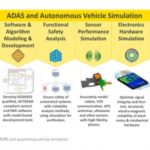In the world of hardware emulators, virtualization is a hot and sometimes contentious topic. It’s hot because emulators are expensive, creating a lot of pressure to maximize return on that investment through multi-user sharing and 24×7 operation. And of course in this cloud-centric world it doesn’t hurt to promote cloud-like… Read More
Author: Bernard Murphy
An Ultra-Low Voltage CPU
A continuing challenge for large scale deployment of IoT devices is the need to minimize service/cost by extending battery life to decades. At these lifetimes, devices become effectively disposable (OK – a new recycling challenge) and maintenance may amount to no more than replacing a dead unit with a new unit. Getting to these… Read More
IP Traffic Control
From an engineering point of view, IP is all about functionality, PPA, fitness for use and track record. From a business/management point of view there are other factors, just as critical, that relate less to what the IP is and more to its correct management and business obligations. The problems have different flavors depending… Read More
Synchronizing Collaboration
Much though some of us might wish otherwise, distributed development teams are here to stay. Modern SoC design requires strength and depth in expertise in too many domains to effectively source from one site; competitive multi-national businesses have learned they can very effectively leverage remote sites by building centers… Read More
Webinar: Chip-Package-System Design for ADAS
When thinking of ADAS from an embedded system perspective, it is tempting to imagine that system can be designed to some agreed margins without needing to worry too much about the details of the car environment and larger environment outside the car. But that’s no longer practical (or acceptable) for ADAS or autonomous systems.… Read More
The Rise of Transaction-Based Emulation
One serious challenge to the early promise of accelerating verification through emulation was that, while in theory the emulator could run very fast, options for driving and responding to that fast model were less than ideal. You could use in-circuit emulation (ICE), connecting the emulation to real hardware and allowing you… Read More
One Cellular Technology to Rule Them All
5G, the planned successor to earlier mobile network standards, holds all kinds of promise for new capabilities beyond LTE, but for a while seemed stuck in debate on exactly what the standard should cover. Several problems are apparent. A path to higher bit-rates is complicated because of spectrum shortage and fragmentation (plans… Read More
Caution: Reset Domains Crossing
Because you can never have too much to worry about in verification, reset domain crossings (RDCs) are another hazard lying in wait to derail your design. Which hardly seems fair. We like to think of resets as dependable anchors to get us back on track when all else fails, but it seems their dependability is not absolute, especially… Read More
SNUG and Robots
I got an invite to the SNUG (Synopsys User Group meeting) keynotes this year. I could only make it to the second keynote but what a treat that was. The speaker was Dr. Peter Stone, professor and chair of CS at UT Austin. He also chaired the inaugural panel for the Stanford 100-year study on AI. This is a guy who knows more about AI than most… Read More
A Formal Feast
It’s not easy having to deliver one of the last tutorials on the last day of a conference. Synopsys drew that short straw for their tutorial on formal methodologies at DVCon this year. Despite that they delivered an impressive performance, keeping the attention of 60 attendees who said afterwards it was excellent on technical content,… Read More


















Advancing Automotive Memory: Development of an 8nm 128Mb Embedded STT-MRAM with Sub-ppm Reliability